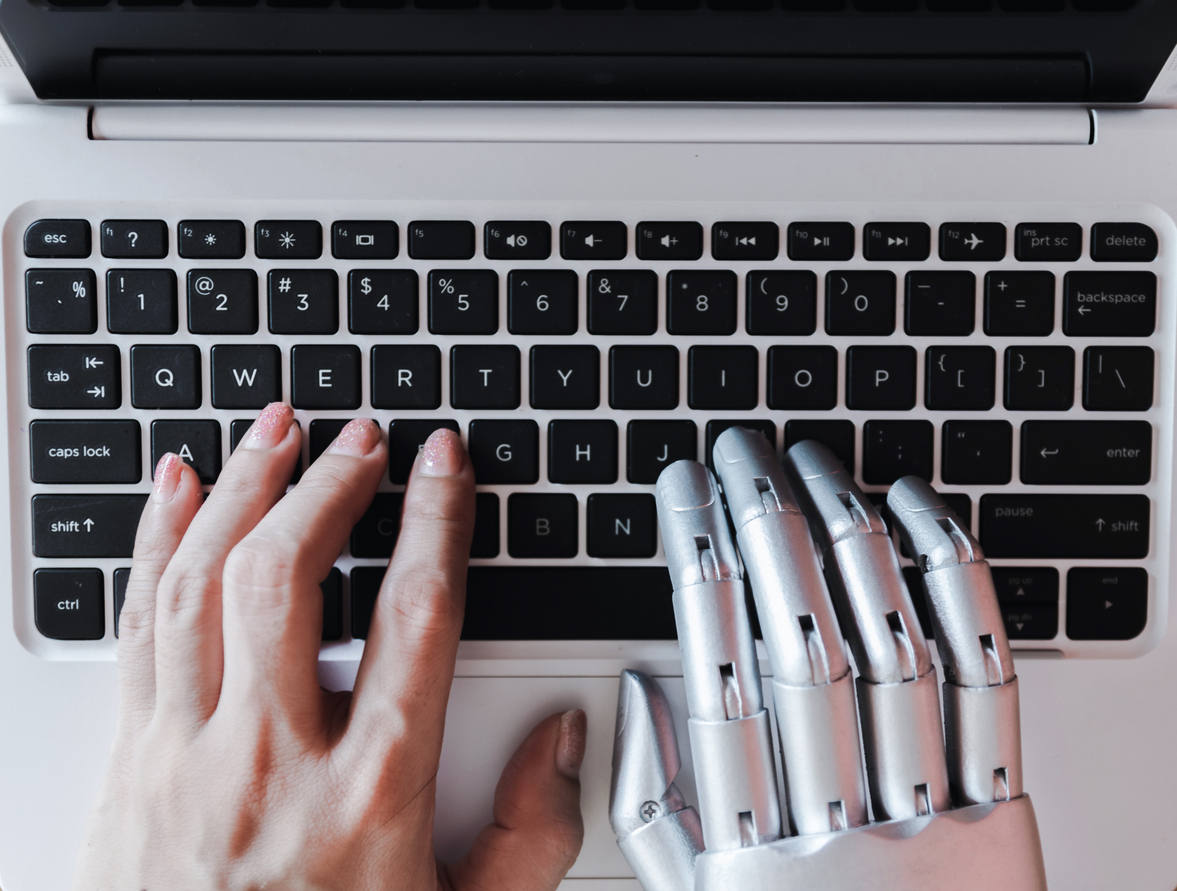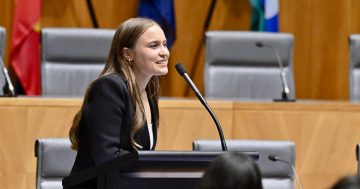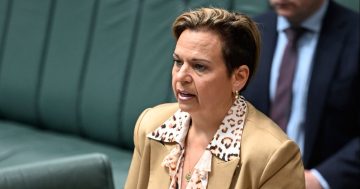
The Productivity Commission has floated the idea that AI should be allowed to harvest Australian creative work without regard to copyright. Photo: Sompong Tom.
A Senate inquiry has severely blasted the Productivity Commission over its approach to artificial intelligence and for suggesting the technology should be exempted from Australia’s copyright laws.
Artists, authors and musicians gave evidence on Tuesday (30 September) to an inquiry looking into the impacts of AI, saying the creative sector would suffer and livelihoods would disappear if the Productivity Commission’s ideas were embraced.
But it was the unlikely tag team of Greens Senator Sarah Hanson-Young and Liberal Senator Sarah Henderson who directed the harshest criticism at two commissioners appearing before the inquiry.
Last month, the Productivity Commission published a draft report ahead of the Federal Government’s productivity roundtable, which stated that AI would likely add more than $116 billion to Australian economic activity over the next decade.
Its interim report, Harnessing data and digital technology, cautioned against a heavy-handed approach to regulating the use of AI and has even floated the idea of a text and data mining exception from the Copyright Act.
That would open the door for AI trainers and platforms to legally exploit “fair dealing” on copyrighted Australian work.
Commissioners Stephen King and Julie Abramson were grilled extensively over the proposal in Tuesday’s hearing.
Mr King said Australia’s current copyright laws were not fit for purpose in the age of AI.
“The training of generative AI models and applications is already happening, mainly overseas, where Australian copyright laws do not apply,” he said.
“It is not realistic to think that we can stop this, so we are looking at policy options that help us navigate this challenge.”
The commissioner admitted, however, that no economic modelling had been conducted on how proposed changes to copyright law would affect Australia’s creative sector.
That wasn’t good enough for Senator Hanson-Young, who accused the PC of a blatant disregard for the value of the arts to Australian society and economy.
“I am gobsmacked that the Productivity Commission issued their interim report in August without consulting all of the appropriate industries and bodies and without doing their homework,” she said.
“You consulted with MasterCard, Microsoft, Meta, OpenAI, Xero, Deloitte, you consulted with a lot of other players, but you didn’t consult with the creative industries.”
Senator Sarah Hanson-Young called for the commission’s report to be withdrawn.
Senator Henderson was just as furious, saying the PC had not displayed “appropriate regard” to Australia’s creative industries.
“Why is it not realistic to protect the work of Australian creatives, to protect it from being stolen in overseas jurisdictions, including by big tech utilising their work on AI platforms?” she asked.
The commissioners said consultations were continuing before the PC’s final report on the issue was released in December.
Commissioner Abramson said the PC had an “open mind” policy approach and had received more than 400 submissions ahead of its final report.
“We are consulting fully on this,” she said.
“One of the purposes of our interim report is to seek feedback on these issues.”
The commissioners stated that when copyrighted material is currently being used for training AI engines overseas, Australia is not reaping the benefits of the development taking place here.
Australian artists told the inquiry that AI could wipe them out within a decade if their work were allowed to be mined for AI training without copyright obligations.
Musicians Holly Rankin (who performs under the stage name Jack River), Adam Briggs, and Paul Dempsey appeared before the committee.
Authors Anna Funder and Thomas Keneally also attended, saying copyright laws should be strengthened in the face of AI.
“There likely will not be well-known Australian artists in 10 to 20 years,” Ms Rankin said.
Ms Funder said authors would cease to write if their work could be freely used for AI and commercial gain.
“If Australia would like books to delight itself, to know itself, to be itself and not a source of raw materials for American or Australian computer companies, we will need books. But without copyright, no one will write them,” she said.
Mr Briggs, a First Nations rapper, told the committee it would be “hard to get genie back in the bottle” if AI companies were allowed access to Australian creativity without paying for it.
“Why is it a radical notion that artists should be compensated for their work?” he asked.
Original Article published by Chris Johnson on Region Canberra.







